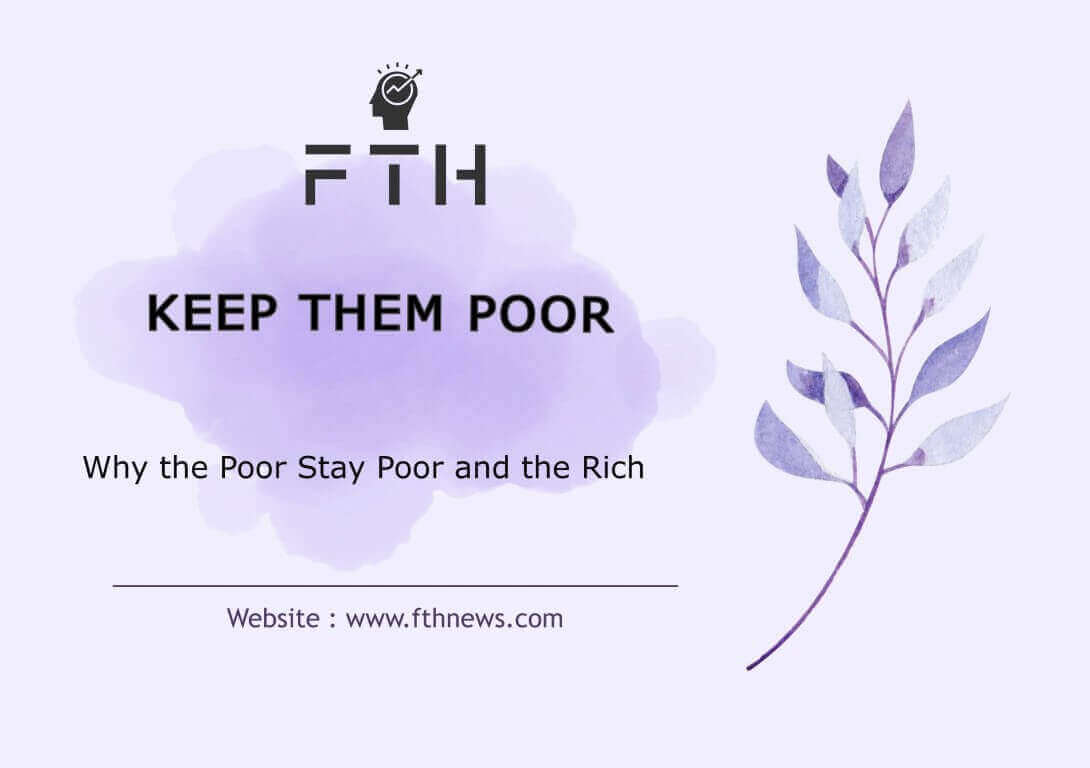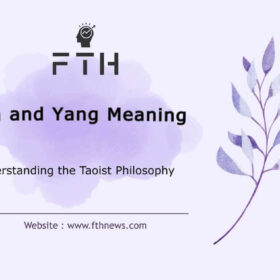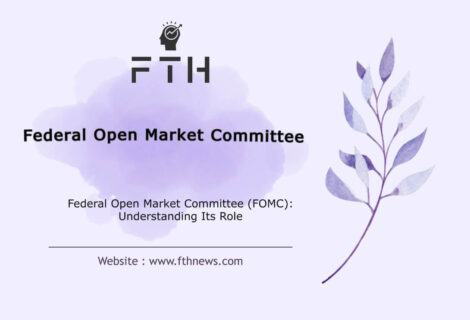
In a world where the rich seem to get richer and the poor struggle to make ends meet, the concept of financial education often remains a mystery to many. This blog post delves into a video KEEP THEM POOR: transcript where Robert Kiyosaki shares a personal anecdote about how playing Monopoly with his “rich dad” as a child laid the foundation for his understanding of money and wealth.
KEEP THEM POOR, Do rich people cringe and say don’t tell them that? Yes, yes, yes. Don’t tell people what you know; keep them poor.
Robert Kiyosaki’s father, a PhD and head of education, provided him with a comfortable upbringing but lacked financial wisdom. One day, Kiyosaki asked him, “Why don’t we learn about money in school?” His response shocked Kiyosaki: “The government doesn’t let us teach that subject. The government tells us what we can teach and what we can’t teach.” This revelation sparked Kiyosaki’s curiosity about money and wealth.
The Journey Begins: Learning from an Entrepreneur
Kiyosaki’s curiosity about money led him to seek advice from his best friend’s father, a successful entrepreneur. His own father suggested this, noting that Mike’s father, unlike himself, was deeply versed in the realities of managing and growing wealth. Intrigued and determined, Kiyosaki visited Mike’s father. Initially, the entrepreneur dismissed young Kiyosaki, likely seeing a child who might not fully grasp the complexities of financial education. However, Kiyosaki’s persistence paid off, and Mike’s father finally agreed to teach him about money on one unique condition: he would never pay him.
Mike’s father explained, “The moment I pay you, you think like an employee. Entrepreneurs work for free.” This concept was revolutionary to nine-year-old Kiyosaki. The idea that working for free could be more valuable than earning a paycheck was a stark contrast to the conventional wisdom of getting a job and earning a salary.
Kiyosaki’s “rich dad” emphasized that entrepreneurs must intimately understand money to survive and thrive. In contrast, employees don’t necessarily need financial acumen because they rely on their employers and the government to manage financial aspects for them. This distinction highlighted the fundamental difference in mindset between employees and entrepreneurs. The lessons Kiyosaki learned from his rich dad laid the groundwork for his later success, illustrating the importance of financial education and independence.
KEEP THEM POOR: Lessons Through Monopoly
Kiyosaki’s rich dad used an unconventional yet effective method to teach him about money: the game of Monopoly. They played the game regularly, and through it, Kiyosaki’s rich dad explained critical financial concepts in a way that was engaging and easy to understand for a young boy. One day, feeling frustrated and eager for more concrete lessons, Kiyosaki asked, “When are you going to teach me about money?” His rich dad responded, “What do you think we’re doing? We’re playing Monopoly.”
The key lesson from these Monopoly sessions was encapsulated in a simple yet powerful strategy: “Four greenhouses, one red hotel.” This principle became the cornerstone of Kiyosaki’s financial education. The idea was to start small by acquiring four greenhouses, which represent smaller, more manageable investments. Once these assets are secured and generating income, you can leverage them to invest in a larger, more profitable asset, represented by the red hotel.
Through this hands-on approach, Kiyosaki learned the fundamental principles of wealth creation: the importance of acquiring and managing assets, understanding cash flow, and the concept of leveraging smaller investments to achieve larger financial goals. These Monopoly lessons provided a practical framework that Kiyosaki could apply in real life, helping him to understand that wealth is built incrementally through smart investments and strategic planning.
From Theory to Reality
Years later, Kiyosaki witnessed his rich dad’s teachings manifest in real life. His rich dad, already a successful entrepreneur, took the principles they discussed during their Monopoly games and applied them to real-world investments. He began by purchasing a significant piece of land in Waikiki Beach. Over time, he strategically acquired smaller adjacent properties, a process known as “land assemblage.” This patient, calculated strategy allowed him to consolidate these smaller parcels into a valuable, larger property.
Eventually, this assembled property became the site for the Hyatt Regency Hotel. This major development project was a tangible representation of the Monopoly lesson: “Four greenhouses, one red hotel.” The hotel, once completed, was a significant asset that highlighted the importance of strategic investment and property development.
When the Hyatt Regency Hotel was sold for $800 million, it stood as a testament to the power of asset acquisition and growth. This real-life application of Monopoly principles reinforced the lessons Kiyosaki learned as a child: start small, be strategic, and focus on growing assets. This experience not only validated the teachings of his rich dad but also provided Kiyosaki with a clear, successful example of how to build and sustain wealth through smart investments.
KEEP THEM POOR: Mindset Matters
Financial education is not just about money; it’s fundamentally about mindset. Kiyosaki’s rich dad emphasized that poverty is often a mindset passed down through generations. He taught Kiyosaki that the way people think and talk about money profoundly affects their financial outcomes. Statements like “I can’t afford it” or “I can’t do that” reflect a scarcity mindset, which creates self-imposed limitations and keeps people trapped in financial struggle.
Instead of accepting these limiting beliefs, Kiyosaki’s rich dad encouraged him to reframe his thinking. He taught him to ask empowering questions like, “How can I afford it?” and “How can I do that?” These questions shift the focus from limitations to possibilities, fostering a mindset of resourcefulness and problem-solving. This approach encourages individuals to seek opportunities, think creatively, and find ways to overcome financial challenges.
By adopting this mindset, Kiyosaki learned to see financial obstacles as opportunities for growth and innovation. This shift in perspective is crucial for breaking the cycle of poverty and achieving financial independence. It underscores the importance of not just acquiring financial knowledge, but also cultivating a mindset that supports wealth creation and long-term financial success.
KEEP THEM POOR: Real Teachers vs. Fake Teachers
Kiyosaki’s experience highlighted a stark contrast between real teachers and what he termed as “fake teachers” within the education system. While traditional schooling prioritizes academic subjects like mathematics and history, it often neglects practical, real-life financial skills. Kiyosaki’s rich dad emphasized that these subjects are crucial for navigating the complexities of money management and wealth creation.
Unlike traditional schoolteachers who teach subjects they may never apply in their own lives, Kiyosaki’s rich dad had a different approach to education. His real teachers were the professionals he interacted with daily: his bookkeeper, accountant, attorney, and other advisors who were actively engaged in their respective fields. These individuals provided Kiyosaki with practical insights and hands-on experience, teaching him the nuances of financial management, investing, and business strategy.
This hands-on learning experience stood in stark contrast to the theoretical teachings of traditional schooling. Kiyosaki learned that true education goes beyond textbooks and classrooms—it involves learning from those who have real-world expertise and actively practice what they teach. This practical approach not only equipped Kiyosaki with valuable skills but also instilled in him a deep understanding of how to apply financial principles in real-life scenarios.
By highlighting the disparity between real teachers who practice what they preach and “fake teachers” who teach theoretical knowledge without practical application, Kiyosaki underscored the importance of seeking mentorship and guidance from those who have achieved success in the areas one wishes to excel in. This lesson continues to resonate as a critical aspect of achieving financial literacy and independence in today’s world.
What We Can Understand from Kiyosaki
Robert Kiyosaki’s journey teaches us valuable lessons about financial education, mindset, and wealth creation:
- Financial Education Beyond Schooling: Kiyosaki emphasizes that traditional education often overlooks essential financial skills. Real learning comes from practical experience and guidance from mentors who actively apply their knowledge.
- Mindset Shift: Poverty is not just a lack of money but a mindset that perpetuates scarcity. Kiyosaki encourages shifting from limiting beliefs (“I can’t afford it”) to empowering questions (“How can I afford it?”), fostering a proactive approach to financial challenges.
- Importance of Real Teachers: Learning from professionals who practice what they teach—like Kiyosaki’s mentors in accounting, law, and investing—provides practical insights that classroom education often lacks.
- Asset Acquisition and Growth: Kiyosaki’s strategy of “four greenhouses, one red hotel” illustrates the fundamental principle of starting small, acquiring assets, and leveraging them to build wealth over time.
- Continuous Learning: Financial education is a lifelong journey. Kiyosaki’s experience underscores the importance of continually seeking knowledge, adapting to changes, and embracing opportunities for personal and financial growth.
By understanding and applying these principles, individuals can empower themselves to take control of their financial futures, break free from limiting beliefs, and pursue their goals with confidence and strategic thinking.
Conclusion KEEP THEM POOR:
Robert Kiyosaki’s journey from a young boy playing Monopoly to a successful businessman highlights the importance of financial education and a mindset shift towards wealth creation. By learning from real-life experiences and surrounding oneself with mentors who actively practice what they teach, individuals can break free from the cycle of poverty and attain financial independence. Remember, the key to wealth lies not only in acquiring assets but also in continually educating oneself and embracing challenges as opportunities for growth.














